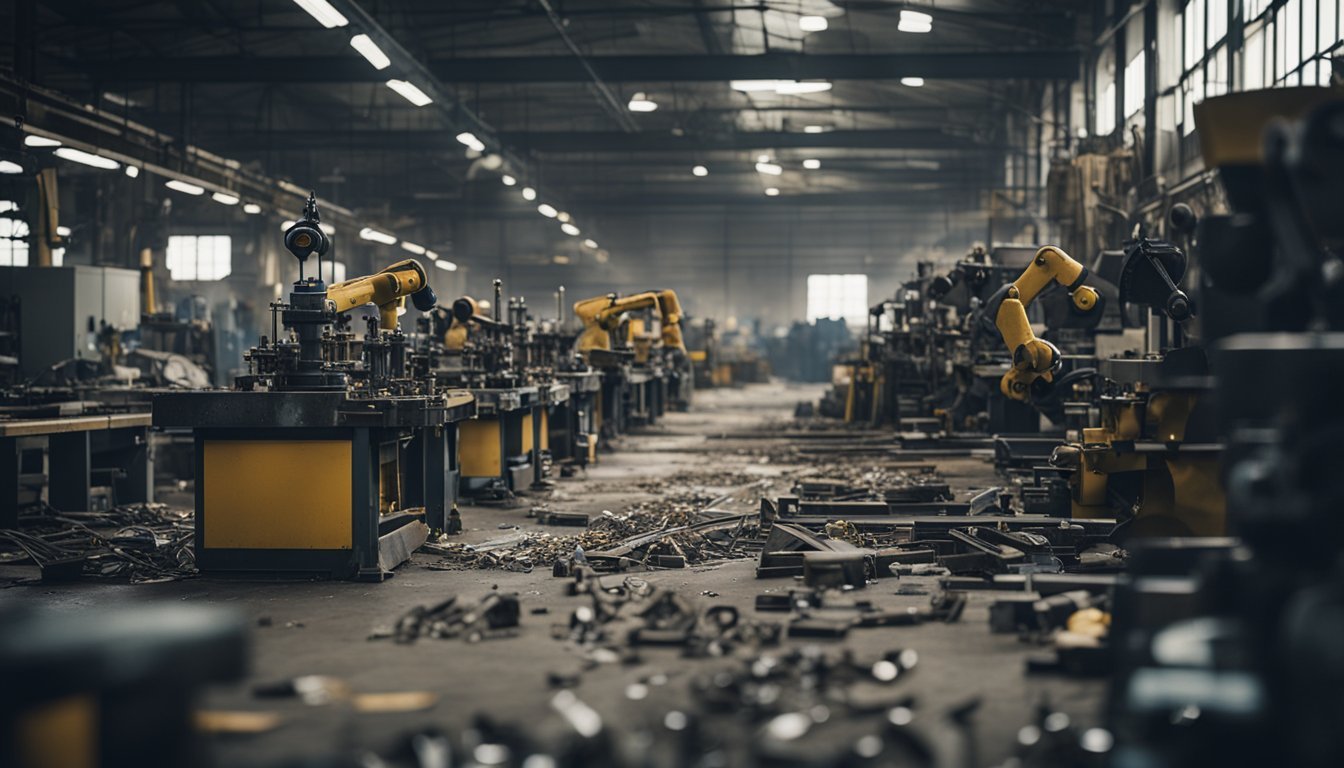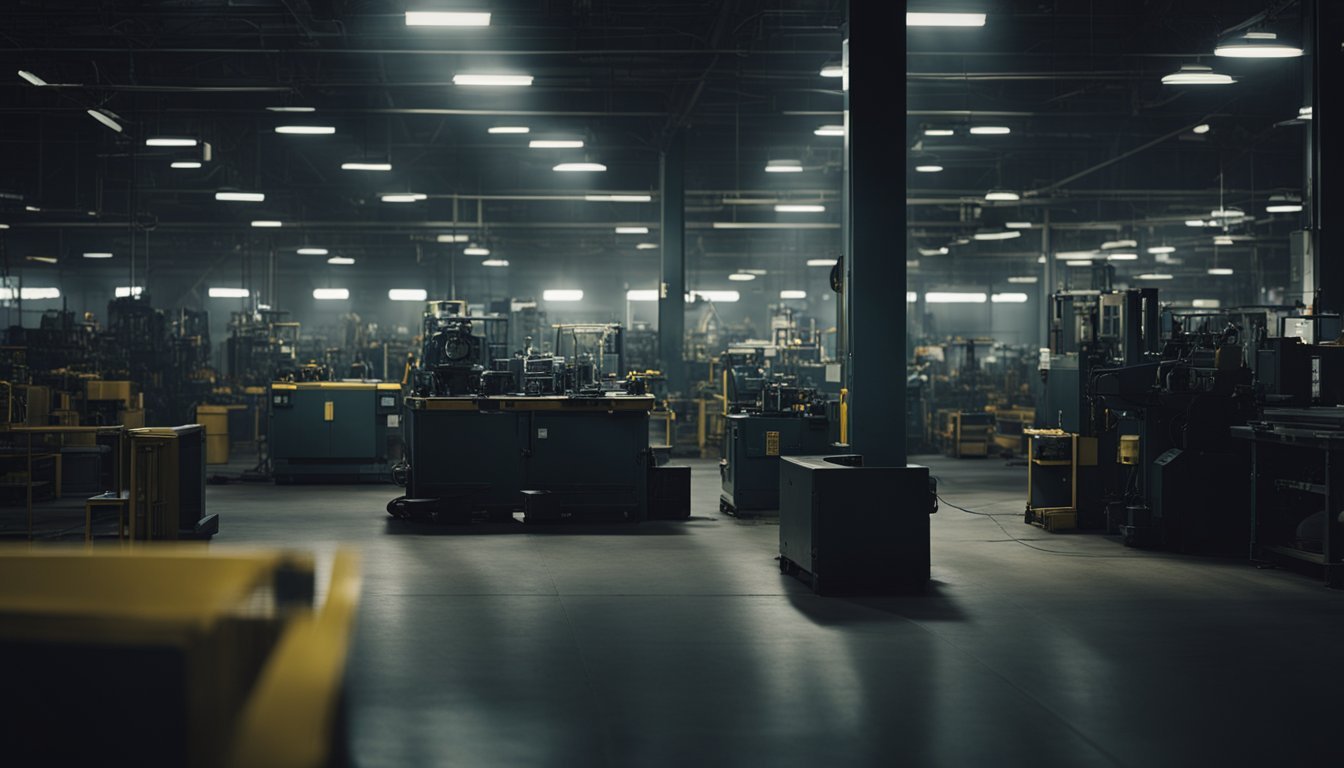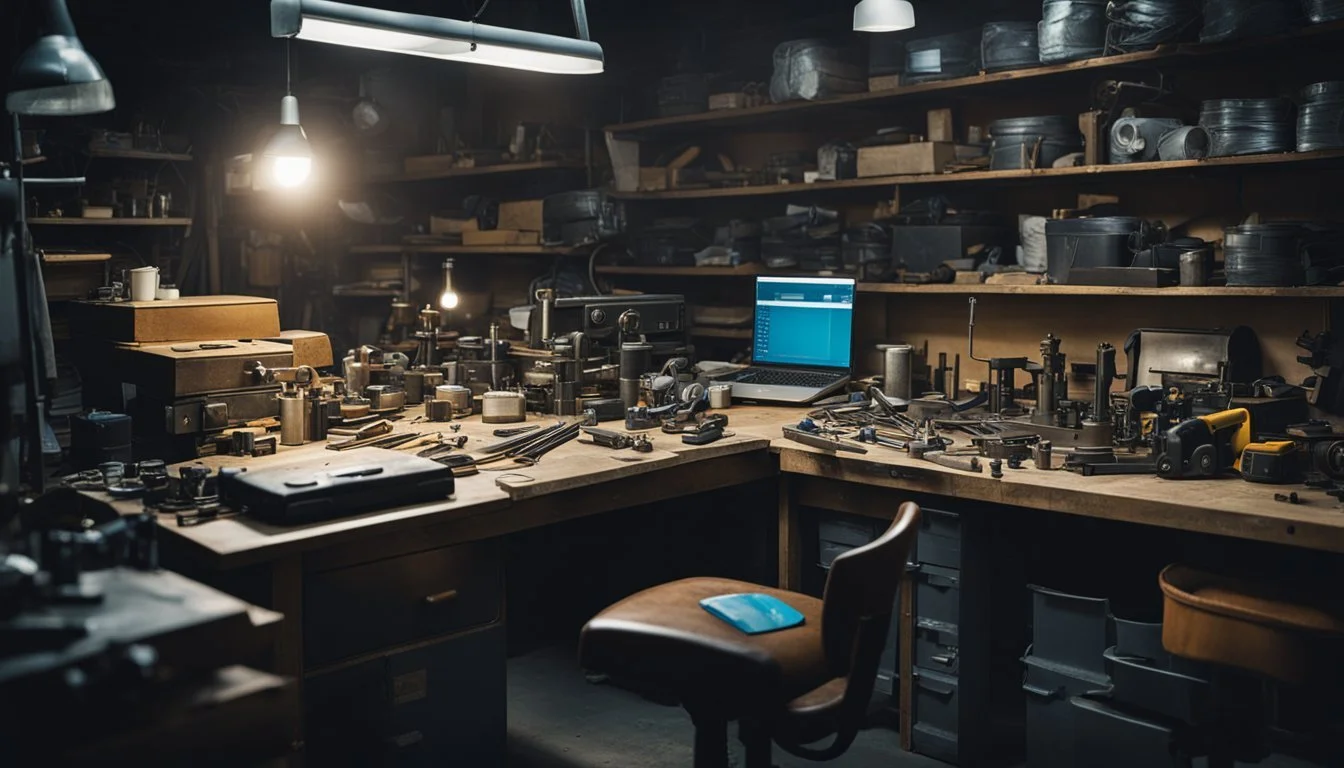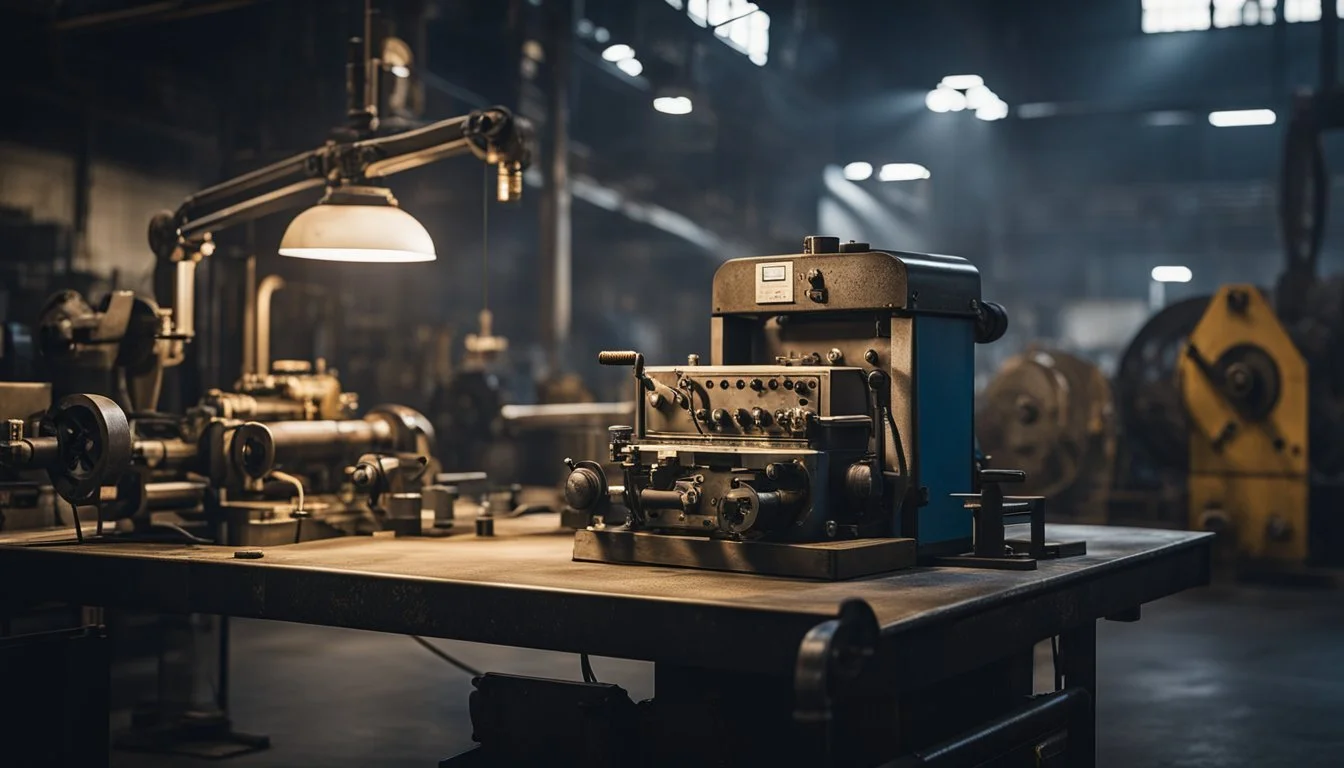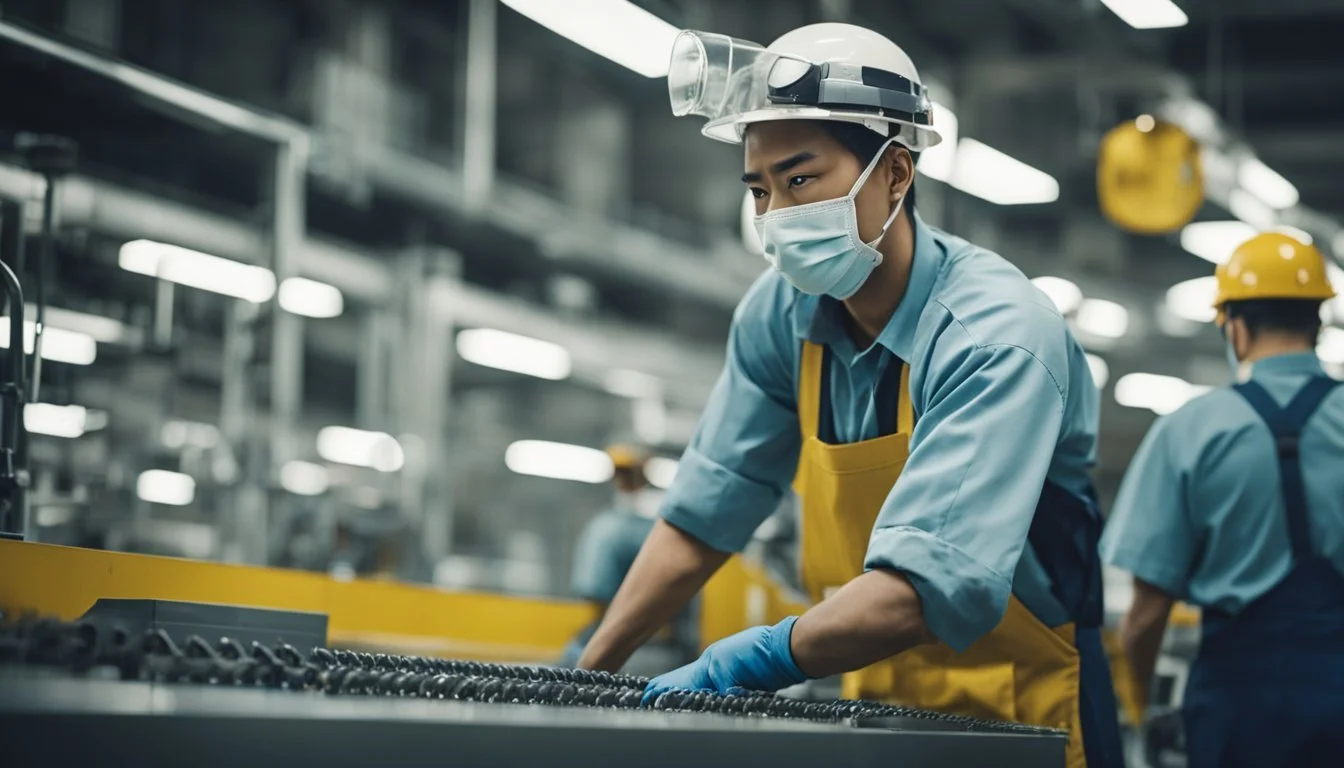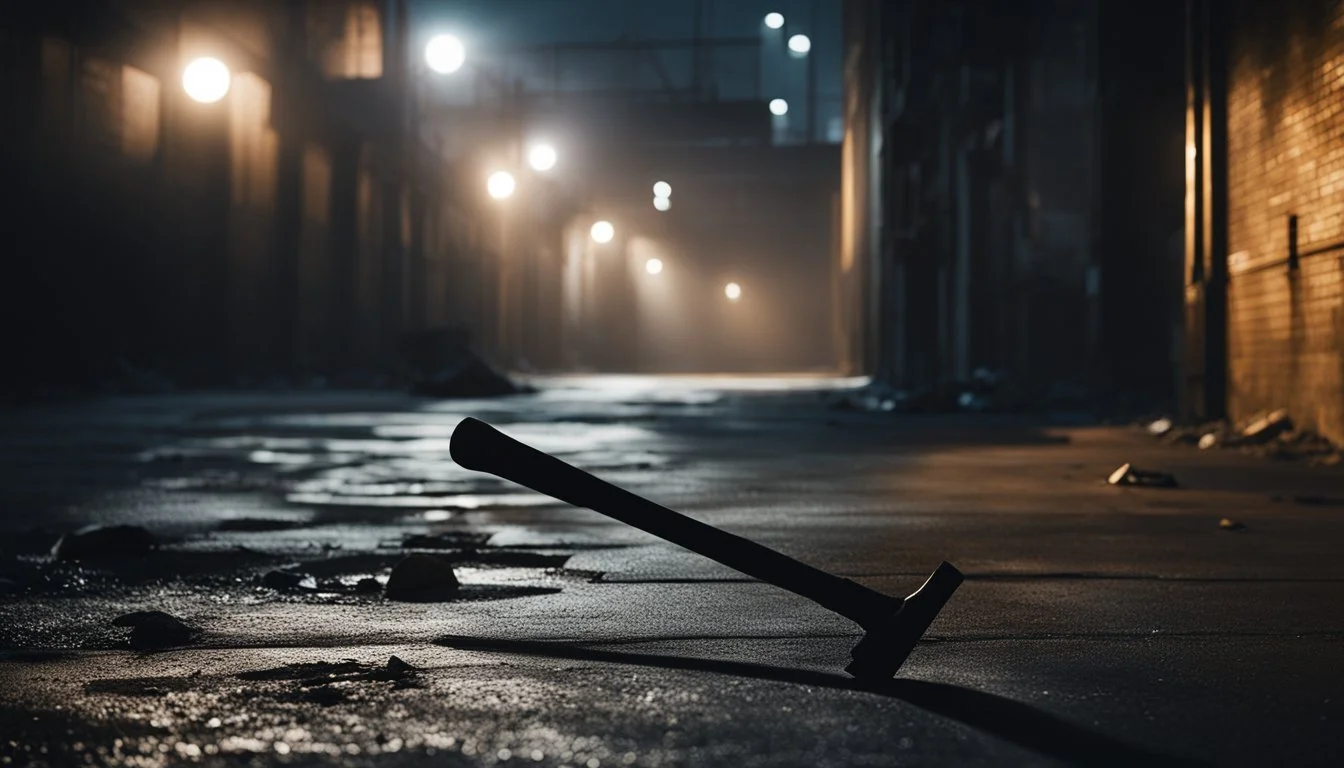10 True Crime Documentaries About Blue-Collar Workers
Gritty Stories of Hardworking Lives
True crime documentaries often focus on individuals from diverse backgrounds, shedding light on the gritty realities they face. While many such films feature stories from the elite or criminal masterminds, a significant number delve into the lives of blue-collar workers, exposing the often harsh and overlooked aspects of their daily existence.
These documentaries provide a unique perspective, blending the struggles of working-class life with gripping tales of crime and justice. Through these narratives, viewers gain insight into the systemic pressures and personal challenges that define the blue-collar experience, making the stories both relatable and riveting.
1) American Factory (2019)
American Factory is a documentary released in 2019, illustrating the profound shifts occurring within blue-collar communities. Directed by Julia Reichert and Steven Bognar, the film captures the transformation of a General Motors plant in Dayton, Ohio, after it is taken over by a Chinese company, Fuyao Glass America.
The documentary unfolds the complex interaction between American and Chinese work cultures. It highlights the struggles faced by the American workers as they adapt to the new management's operating style and expectations.
American Factory provides a stark look at how globalization affects local industries and workers. It portrays the tension, frustration, and hope experienced by both American and Chinese workers as they strive to find common ground.
American Factory is significant for its candid presentation of the challenges and realities of modern-day blue-collar work in a globalized economy. It sheds light on the broader implications of such cross-cultural industrial mergers.
More information on American Factory on IMDb.
2) The Death of a Salesman (2024)
"The Death of a Salesman" offers a deep dive into the iconic play by Arthur Miller. This documentary centers around the 1999 Broadway cast, including actors Brian Dennehy and Elizabeth Franz.
Interviews with the cast and Arthur Miller himself shed light on the play's portrayal of blue-collar existence and its broader cultural impact.
The documentary highlights the struggles of the main character, Willy Loman, a traveling salesman facing the harsh realities of a changing economy.
The portrayal of Willy's desperation and his family's hardships resonates with many real-life experiences of blue-collar workers.
This film effectively juxtaposes the fictional struggles of Willy with the real-life challenges faced by working-class individuals.
For more details, you can visit its IMDb page.
3) Factory Floor Tragedy
Factory floor settings are often depicted as the backdrop for many blue-collar true crime documentaries, highlighting how dangerous these workplaces can be.
One notable documentary in this genre is "American Standoff" (2002). This film follows the bitter labor disputes and tragic consequences that occur in an Oregon steel plant. The clash between management and workers provides a raw look into the human cost of industrial labor.
Another significant film is "Blue Collar" (1978). Though a fictional crime drama, it powerfully conveys the trials of auto workers in Detroit. Richard Pryor delivers a standout performance, portraying the desperation that leads to a plan to rob their own corrupt union, reflecting the brutal reality faced by many blue-collar workers.
More Info
Lastly, the documentary "The Killing Floor" (1984) depicts the racial and class struggles faced by Chicago stockyard workers during World War I. It highlights the intense working conditions and the split between unionized workers, culminating in violent clashes that echo through the industry’s history.
More Info
4) Night Shift Nightmare (2021)
"Night Shift Nightmare: The Unsolved Austin Yogurt Shop Murders" delves into the tragic events that took place in December 1991. The documentary explores the brutal killings of four teenage girls—Amy Ayers, Sarah Harbison, Jennifer Harbison, and Eliza Thomas—in an Austin, Texas yogurt shop.
The film utilizes interviews, archival footage, and expert analysis to dissect the ongoing investigation. Despite years passing since the murders, the case remains unsolved, making it both haunting and compelling.
By focusing on the victims and their families, the documentary sheds light on the human side of this horrific crime. It examines the impact on the community and the persistent quest for justice.
For more information on "Night Shift Nightmare," visit IMDb.
5) The Machinist's Secret (2023)
The Machinist's Secret is a gripping documentary released in 2023 that delves into the hidden lives of blue-collar workers in the industrial sector.
Centered around the mysterious death of a skilled machinist in a small-town factory, the film explores the dangerous working conditions and personal struggles faced by these often-overlooked laborers.
Through interviews with colleagues, family members, and industry experts, viewers gain insight into the complex dynamics of the factory floor. The documentary highlights both the camaraderie and the conflicts that arise in such high-pressure environments.
The Machinist's Secret is notable for its raw portrayal of the physical and mental toll that factory work can take on individual workers. The film's cinematography vividly captures the gritty, oppressive atmosphere of the machinery-laden workplace, further immersing the audience in the machinist's challenging world.
For more information on The Machinist’s Secret, visit IMDb.
6) Blue-Collar Crime Chronicles
"Blue Collar" (1978) explores the lives of Detroit auto workers who turn to crime out of frustration with their working conditions. The film highlights the struggles of blue-collar workers and the sometimes desperate measures they take. IMDB
"American Factory" (2019) is a documentary that follows the reopening of a General Motors plant by a Chinese company in Ohio. The film addresses the cultural clashes and labor issues that arise, giving a vivid picture of blue-collar life today. IMDB
"Out of Sight" (1998) involves a bank robber and a U.S. Marshal. The narrative, though fictional, is rooted in the blue-collar world, shedding light on the lives of those who turn to crime. IMDB
"The Meatpacking Industry" (2006) focuses on the grim realities faced by workers in the meatpacking industry. This film exposes the dangerous conditions and exploitative practices rampant in this blue-collar sector. Wikipedia
"Steel Town" (1958) offers an older perspective on blue-collar life, focusing on steelworkers and their daily challenges. The film provides historical insights into the lives of mid-20th-century industrial workers. IMDB
"Blue Collar America" (1989) documentary gives a broader look at the various struggles faced by blue-collar workers across different industries. This film covers everything from factory work to manual labor in diverse sectors. Wikipedia
7) Steel Town Murders (2023)
"Steel Town Murders" is a gripping four-part true crime drama that premiered in 2023.
The miniseries is set in Port Talbot, South Wales, during the 1970s. It dives into the tragic real-life murders committed by Joseph Kappen, known as Wales' first documented serial killer.
Kappen's crimes involved the brutal rapes and murders of three young girls. The show not only details the harrowing events that tore a community apart but also highlights the pioneering use of DNA evidence decades later to finally identify Kappen as the killer.
Philip Glenister and Steffan Rhodri lead the cast as detectives determined to solve these chilling crimes, offering a closer look at both the investigation and its impact on those involved.
For more information, visit IMDb.
8) Assembly Line Assassination
"Assembly Line Assassination" centers on the harsh realities faced by blue-collar workers in industrial settings. This documentary delves into a particularly grim event at a Detroit motor car assembly plant. The film reveals how three workers, fed up with the corruption within their union, decide to fight back.
Tensions escalate as these men attempt to expose the union's illegal activities. The camaraderie they once shared disintegrates, leading to tragic consequences. The story captures the intense struggle between laborers and the union meant to protect them.
The film is both a gripping narrative and a sobering reflection on the intersection of labor rights and personal struggle. By focusing on real people and actual events, it provides an unflinching look at the cost of corruption in blue-collar environments.
Learn more about this film on its IMDb page. (1978)
9) Warehouse Woes
Many true crime documentaries shed light on the challenges faced by blue-collar workers in warehouses. These films explore issues ranging from unsafe working conditions to systemic labor injustices.
One such documentary focuses on Amazon warehouse workers. The film explores their struggles, including pressure to meet high productivity targets and the impact of these demands on their health and well-being.
Another documentary delves into the unionization efforts of warehouse employees. It highlights the challenges workers face in organizing, often in the face of significant resistance from management.
These films offer a glimpse into the lives of those working in warehouse environments, raising awareness about their hardships and highlighting the importance of labor protections. They also underscore the broader implications of warehouse logistics in today’s economy.
For more information on documentaries about warehouse workers, see this Wikipedia link.
10) Union Labor Killings
Labor unions have often found themselves at the center of true crime documentaries. "Harlan County, USA" (1976) is one of the most notable examples. This documentary covers the dire conditions and the violent conflicts that arose during the Brookside Strike in Kentucky. The film provides an unfiltered look at the harsh realities faced by coal miners.
"Who Killed the Electric Car?" (2006) explores the controversial decision by General Motors to destroy its fleet of electric vehicles in the late 1990s. While the film primarily focuses on environmental and economic issues, it also touches on labor disputes and the impact on workers who built the cars.
"Ice-T Presents: Assault on Precinct 13" (2005) might not be a traditional documentary, but its portrayal of union corruption and internal struggles is quite impactful. The narratives delve into violent confrontations, showcasing the darker side of union activities.
"Matewan" (1987), although a dramatized account, depicts the bloody labor dispute in Matewan, West Virginia. The real-life battle between coal miners, the Stone Mountain Coal Company, and the Baldwin-Felts Detective Agency is vividly brought to life.
"American Dream" (1990) documents the labor strike at Hormel Foods in Austin, Minnesota, highlighting the intense battles workers faced against corporate power and union leadership.
The Role of Blue-Collar Workers in True Crime Documentaries
Blue-collar workers often find themselves either subjected to systemic biases or portrayed in environments that amplify their challenges. This section examines these aspects closely.
Challenges and Perspectives
In true crime documentaries, blue-collar workers frequently navigate intense social and economic pressures. These individuals often work in demanding, labor-intensive jobs that provide limited financial stability or upward mobility.
Documentaries like "The Thin Blue Line" explore how societal structures can create environments filled with suspicion and prejudice against blue-collar workers. Poverty and economic hardship can become significant factors that push individuals into desperate situations, occasionally leading to criminal behavior or accusations.
By presenting these real-life stories, filmmakers shine a light on the harsh realities and difficulties faced by the working class. This often leads to a more profound understanding of the complexities surrounding crime within this demographic.
Representation in Media
Media portrayal of blue-collar workers in crime documentaries can shape public perception significantly. Shows and films often emphasize the gritty, unvarnished aspects of blue-collar life, which can affect societal attitudes toward these workers.
Examples like "Team Foxcatcher" and "Blue Collar" delve into the nuanced lives of these individuals, focusing on their struggles and the systemic obstacles they encounter.
By representing their stories authentically, true crime documentaries contribute to a broader recognition of the diverse factors influencing criminal behavior. They also highlight the disparities in how blue-collar and white-collar crimes are perceived and prosecuted in society, thus offering a more balanced view of justice.
Socioeconomic Factors Impacting Blue-Collar Workers
Blue-collar workers face numerous socioeconomic challenges that greatly influence their daily lives and overall well-being. Key issues include economic hardships and job insecurity, which can have profound impacts on their financial stability and mental health.
Economic Hardships
Many blue-collar workers struggle with financial instability due to lower wages and rising living costs.
High levels of debt are common, as many live paycheck-to-paycheck, without sufficient savings for emergencies. This financial strain can lead to increased stress and poor mental health, affecting overall quality of life.
Reduced access to healthcare is another critical issue. Many jobs do not provide adequate health benefits, leading to unmet medical needs and worsening health conditions over time. These financial and health struggles are exacerbated by regional economic disparities, particularly in areas heavily reliant on industries facing decline.
Job Insecurity
Job security remains a significant concern for blue-collar workers, especially in industries susceptible to automation and economic shifts.
Automation and technological advancements have displaced many traditional jobs, reducing opportunities for stable employment. This shift often forces workers to retrain or relocate, which can be financially and emotionally taxing.
Economic downturns disproportionately impact blue-collar sectors, leading to frequent layoffs and uncertain job prospects. This instability makes it challenging for workers to plan for the future or invest in long-term goals, such as home ownership or higher education for their children.
Temporary and gig employment trends have also introduced greater uncertainty, as these positions often lack benefits and long-term security. These factors together create a precarious economic environment for blue-collar workers.




